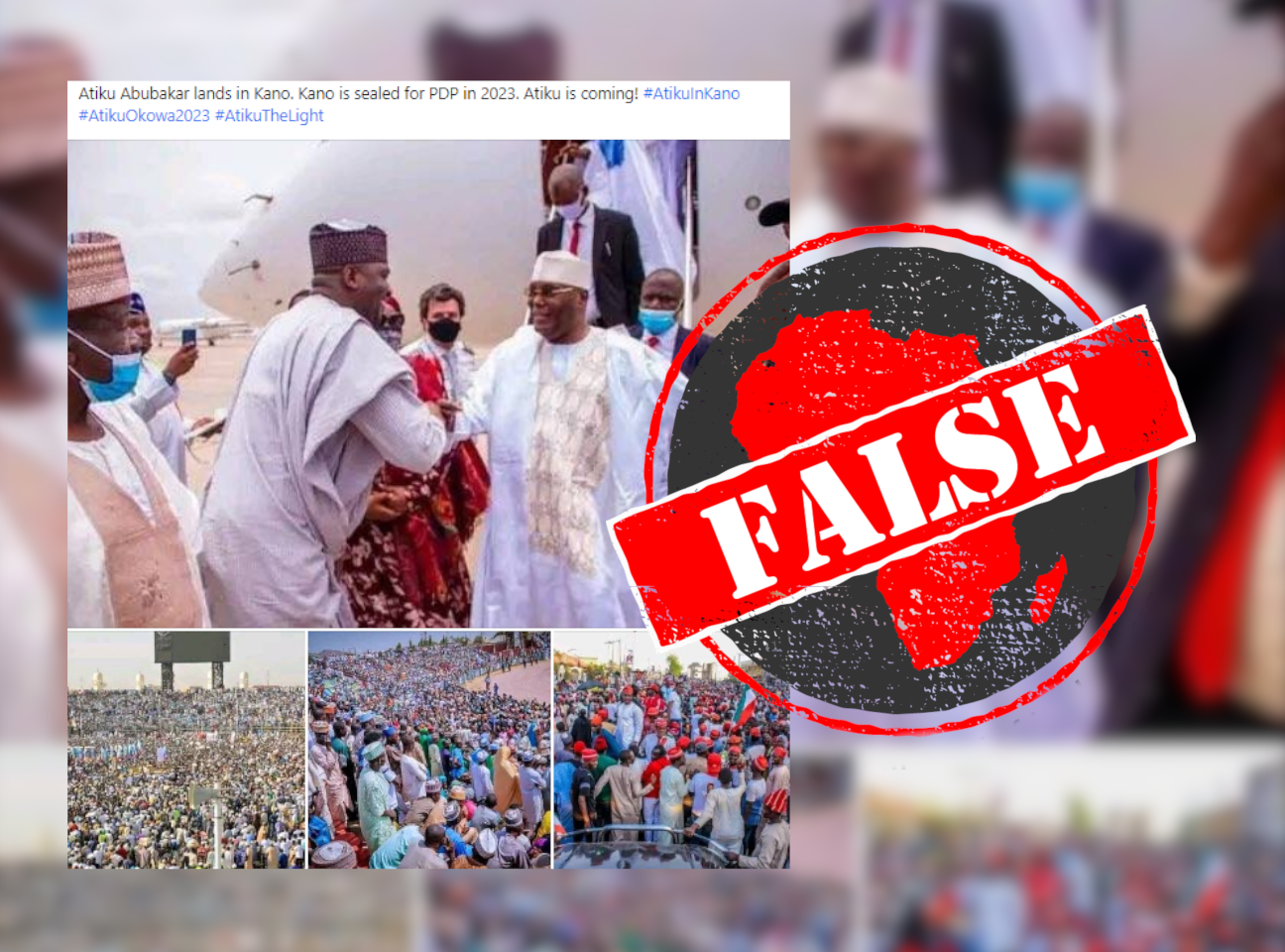Ahead of the Nigerian general election in February 2023, politicians in the country are holding rallies, with large crowds seen as proof of popularity.
On 29 August 2022, the day after Peoples Democratic Party presidential candidate Atiku Abubakar visited Kano in northern Nigeria, three photos of huge crowds were posted on Facebook with the claim that they showed people welcoming his arrival in the state.
The claim appears in other Facebook posts and on Twitter.
Abubakar hails from Jada in Adamawa state, northeastern Nigeria.
“Atiku Abubakar lands in Kano. Kano is sealed for PDP in 2023. Atiku is coming!” reads one caption to the photos.
According to reports, Abubakar and rival All Progressives Congress presidential candidate Bola Tinubu are campaigning hard in Kano, a swing state.
In 2019, current president Muhammadu Buhari defeated Abubakar in Kano with over a million votes.
But do the photos really show Abubakar’s recent visit to Kano?

Photos from 2019, 2021
Using Google reverse image search, we discovered that the first photo is not recent. The earliest online version we could find is from a 21 August 2021 article in Medium, headlined: “PhotoNews: AtikuKawai welcomes Atiku in Kano”.
More reverse image searches reveal that the second photo is also years old.
With Yandex, a reverse image search tool, we discovered that the third and fourth photos are not recent either.
The earliest online version we could find for the third photo is from a 12 January 2019 article and for the fourth photo, the earliest online version is from an 11 February 2019 article in the Cable.
The fourth photo was taken during Abubakar’s visit to Kano, but that was in 2019, not 2022.
Republish our content for free
For publishers: what to do if your post is rated false
A fact-checker has rated your Facebook or Instagram post as “false”, “altered”, “partly false” or “missing context”. This could have serious consequences. What do you do?
Click on our guide for the steps you should follow.
Publishers guideAfrica Check teams up with Facebook
Africa Check is a partner in Meta's third-party fact-checking programme to help stop the spread of false information on social media.
The content we rate as “false” will be downgraded on Facebook and Instagram. This means fewer people will see it.
You can also help identify false information on Facebook. This guide explains how.


Add new comment